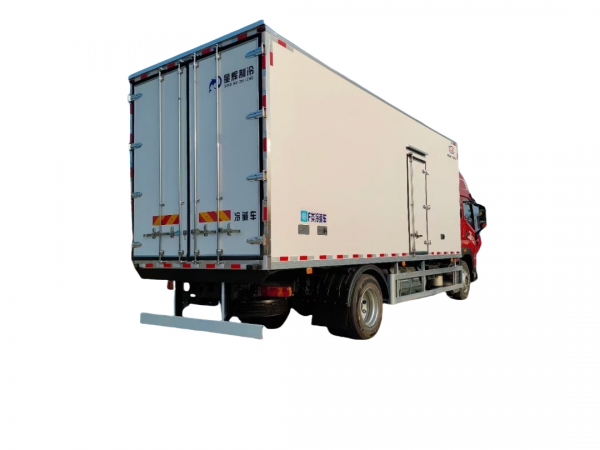Introduction
Box trucks are essential vehicles for many businesses, as they are used for transporting goods and materials from one location to another. To ensure the safe and efficient operation of your box truck fleet, it is crucial to establish a comprehensive maintenance schedule. Proper maintenance not only helps prevent breakdowns and costly repairs but also extends the lifespan of your vehicles. In this guide, we will explore the importance of box truck maintenance, key components of a maintenance schedule, and tips for staying on top of routine maintenance tasks.
Importance of Box Truck Maintenance
Regular maintenance is essential for the safe and efficient operation of box trucks. By following a structured maintenance schedule, you can identify and address issues before they escalate into major problems. truck mounted crane helps prevent unexpected breakdowns, which can disrupt your business operations and lead to costly downtime. Additionally, well-maintained box trucks are more fuel-efficient and produce fewer emissions, which can help reduce operating costs and minimize your environmental impact.
Key Components of a Box Truck Maintenance Schedule
A comprehensive box truck maintenance schedule should cover all essential components of the vehicle, including the engine, transmission, brakes, tires, and electrical system. Here are some key components to include in your maintenance schedule:
1. Engine Maintenance: Regular engine maintenance is crucial for optimal performance and fuel efficiency. This includes oil changes, air filter replacements, and spark plug inspections. Additionally, it is important to check the engine for any signs of leaks or unusual noises.
2. Transmission Maintenance: The transmission is a critical component of a box truck, as it is responsible for transferring power from the engine to the wheels. Regular transmission fluid changes and inspections can help prevent costly repairs and ensure smooth shifting.
3. Brake Maintenance: Properly functioning brakes are essential for the safety of your drivers and cargo. Regular brake inspections, pad replacements, and rotor resurfacing can help prevent brake failures and accidents.
4. Tire Maintenance: Well-maintained tires are essential for safe driving and fuel efficiency. Regular tire inspections, rotations, and pressure checks can help extend the lifespan of your tires and improve traction on the road.
5. Electrical System Maintenance: The electrical system of a box truck powers essential components such as lights, signals, and the starter motor. Regular battery checks, alternator inspections, and wiring inspections can help prevent electrical failures and ensure reliable operation.
Tips for Staying on Top of Routine Maintenance Tasks
Staying on top of routine maintenance tasks can be challenging, especially when managing a fleet of box trucks. Here are some tips to help you stay organized and ensure that your vehicles receive the care they need:
1. Create a Maintenance Schedule: Develop a detailed maintenance schedule that outlines specific tasks, intervals, and responsible parties. This schedule can be based on manufacturer recommendations, industry best practices, and the unique needs of your fleet.
2. Use Maintenance Software: Consider investing in maintenance software to track maintenance schedules, work orders, and vehicle history. This can help streamline the maintenance process, reduce paperwork, and ensure that all tasks are completed on time.

3. Train Your Drivers: Provide your drivers with training on basic maintenance tasks, such as checking oil levels, tire pressure, and brake fluid. Encourage them to report any issues or abnormalities they notice during their pre-trip inspections.
4. Partner with a Trusted Mechanic: Establish a relationship with a trusted mechanic or repair shop that specializes in box trucks. Regular inspections and maintenance by a professional can help identify potential issues early and prevent costly repairs down the line.
5. Conduct Regular Inspections: Implement a routine inspection program to identify and address issues before they escalate. Inspections can include checking fluid levels, belts, hoses, and other critical components.
Conclusion
Maintaining a box truck fleet is a significant investment that requires careful planning and attention to detail. By implementing a structured maintenance schedule and following best practices, you can keep your vehicles running smoothly and minimize the risk of unexpected breakdowns. Remember that regular maintenance not only improves the safety and performance of your box trucks but also helps protect your bottom line. With the tips and guidelines provided in this guide, you can establish an effective maintenance program that ensures the long-term success of your business.
